To navigate the love-hate relationship that has come to define Hawaii tourism, we look beyond our beautiful beaches, lush tropical landscapes, and vibrant cultures. What became a dream destination for U.S. travelers and those worldwide is fast-changing, and the future is anything but straightforward.
Behind what once appeared as a postcard of tropical perfection stands a complex relationship between Hawaii, the tourism industry, and its loyal visitors. While tourism remains the industry that in many ways sustains Hawaii, contradictory emotions have reached a new level of palpable tension between that which brings economic prosperity to some and the destruction of the Hawaii of old to others.
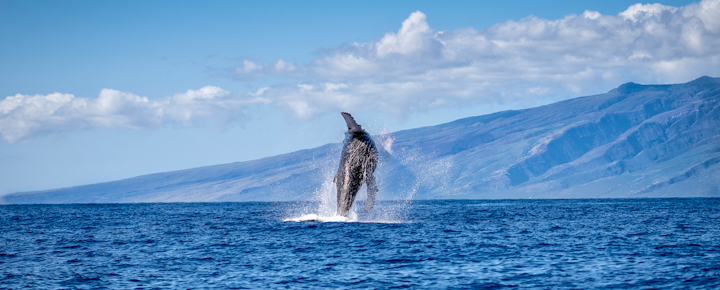

Hawaii tourism isn’t a panacea.
While Hawaii tourism is often referred to as the state’s financial lifeblood, employing the largest part of our workforce and bringing in billions of dollars each year, it has by no means been a panacea for all.
For many residents, tourism provides essential income and job opportunities, making it indispensable for their livelihoods. But, the vast majority of the jobs that travel creates and supports are lower-paying ones that do not keep pace with the cost of living in Hawaii. That is true across Hawaii travel, and includes most people employed by airlines, hotels, restaurants, activities, entertainment, and more.
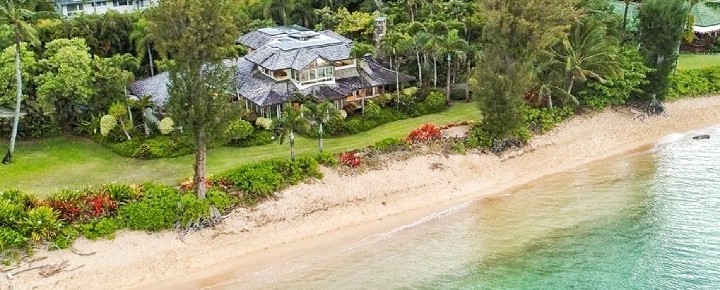

Rich and famous now call Hawaii home.
Not only has Hawaii become accessible to regular visitors, but it has evolved as an affordable place for the rich and famous to buy up land. As Hawaii became a most sought-after destination for travelers seeking a paradisaical vacation, the islands also called to those with great wealth, power, and fame. Celebrities and business moguls have been drawn here and have acquired large and prime real estate for lavish estates and private walled and guarded retreats.
Some of those most associated with Hawaii land acquisition include Oprah Winfrey’s on Maui, and Mark Zuckerberg’s expansive real estate holdings and mega-estate on Kauai. These and other high-profile land grabs have transformed Hawaii’s high-end luxury real estate market, and contributed to Hawaii’s reputation as the playground of the rich and famous.
They have also added to the great disparity between the haves and the have nots in Hawaii and may have negatively impacted the view of visitors towards Hawaii. Despite the challenges, the allure of Hawaii continues to attract the rich and famous. This presents yet another complexity in the Hawaii tourism story that reveals some of the challenges we face in Hawaii today.
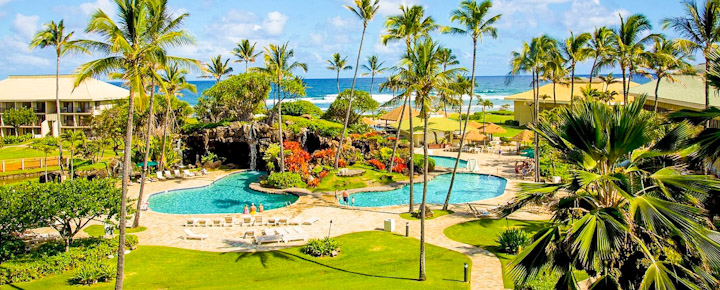

The visitor influx has challenged Hawaii’s environment and its woefully inadequate infrastructure.
These small remote islands have fragile ecosystems under constant pressure from overtourism, pollution, and the strain of accommodating ten million visitors annually. The result is overcrowding, traffic, and damage to coral reefs and Hawaii’s marine life. Popular destinations throughout the state grapple with these issues.
Commercialization of the Hawaiian culture has also long raised often unspoken issues related to cultural appropriation and sheer exploitation. The essence of Hawaiian culture has largely been turned into commodities of profit, but not for those whose culture it is.
Enters Hawaii housing crisis.
Hawaii’s housing crisis has now placed even renting out of the range of many residents and resulted in homeless camps that visitors then complain about seeing. Those who live here sincerely struggle to find and keep affordable housing, leading to further resentment towards tourism and visitors.
Hawaii needs to find some balance between economic growth, environmental and cultural preservation, visitors and residents. There is a growing recognition in Hawaii of the importance of preserving culture and natural resources for future generations. In how Hawaii tries to navigate this, visitors sometimes find their animosity. You see it across thoughts and comments on Beat of Hawaii.
Hawaii tourism dates back to ocean travel in the early 20th century.
Then, wealthy travelers from the mainland started visiting Hawaii. It was new, and it was serious adventure travel. Few people could afford the time and expense associated with steamship travel here.
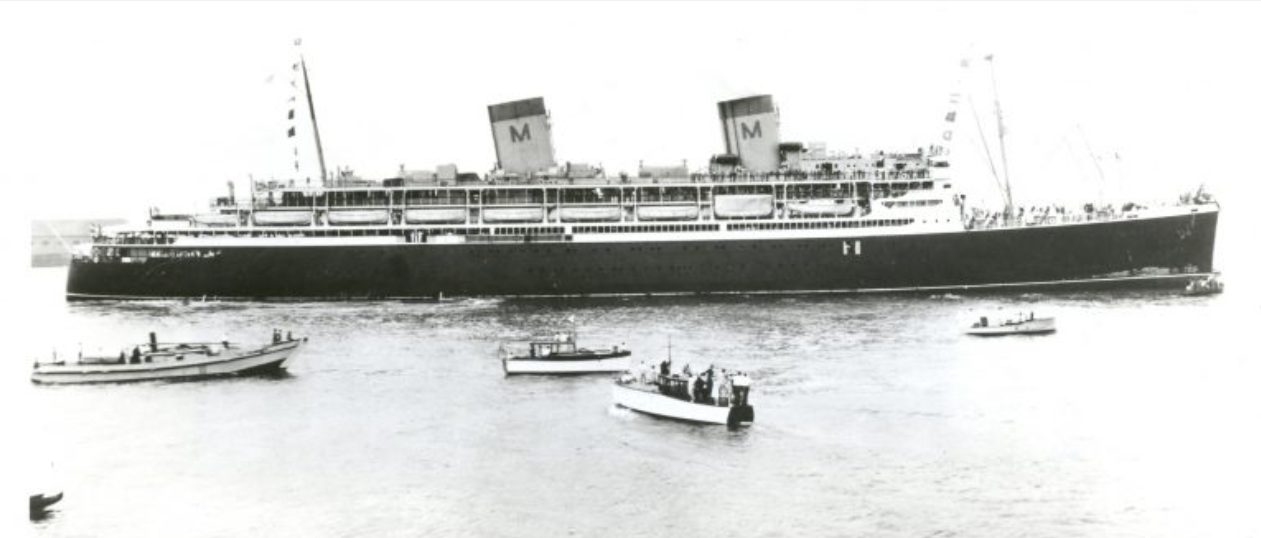

Steamship travel had a pivotal role in Hawaii travel for over a century.
Matson, the familiar name we know for the transportation of materials essential to Hawaii today, was once instead known for steaming affluent visitors here in luxurious accommodations with fine dining and entertainment. The company was essential in the early years, promoting Hawaii as an exotic adventure destination, and it helped set Hawaii’s role in global travel thereafter.
Starting in 1908, Matson sailed a 51 passenger ship here from the West Coast. And by 1910, a 146-passenger ship joined, which made Hawaii travel as enviable as Europe.
Even earlier, sugar company Spreckel’s began steamship services in 1881. Spreckel’s captain was none other than William Matson, who went on to be a huge force in Hawaii travel in 1882, when tourism began from San Francisco and in 1914, from Los Angeles.
Did you know that Matson was one of the developers of the Royal Hawaiian Hotel and had ownership in other Hawaii hotels?
Hawaii’s role as a “premium” global destination isn’t new.
More than 20,000 visitors traveled to Hawaii in the early 1900’s. That grew to 1 million annual visitors by the 1960s, when jet travel kicked in, skyrocketing to today’s ten million.
After WWII, Hawaii travel was off to the races.
In 1941, Pearl Harbor inserted Hawaii into the global travel spotlight forever. A surge in tourism followed as visitors sought to see Hawaii for the first time or to return following service. Iconic attractions like Waikiki Beach became bucket-list destinations for visitors worldwide. The post-WWII boom would soon be met with yet another extravaganza that would lay the groundwork for Hawaii travel of today.


Jet travel again forever changed Hawaii.
Even before jets arrived, there was Pan Am, United Airlines, Northwest, and others. Commercial flights to Hawaii started in 1936. They resumed with a vengeance following WWII.
Hawaii travel expanded exponentially as jets greatly reduced the time and expense of getting to Hawaii. The islands became easily accessible to far more people. With that came new marketing initiatives to drive even more visitors by the travel industry, including the airlines. They successfully promoted that which needed little help: Hawaii’s spectacular beauty and attractions. Luxury resorts seemingly everywhere came to support that influx of tourists. All of this changed the literal face of Hawaii, and in many ways, not for the better.
However, alongside the economic benefits of tourism came a host of challenges.
Those included environmental degradation, cultural exploitation, and increasing social inequality. Concerns about over development, pollution, and the erosion of Hawaiian culture and community started to prompt outcries for tourism regulation as the state has sought to balance economic benefit with self-preservation.
Understanding Hawaii’s complex ambivalence with tourism.
Grasping this conundrum in Hawaii travel takes patience and willingness on everyone’s part. Tourism in the islands has both benefits and pitfalls. And answers on how to go forward from here aren’t coming easily. Understanding Hawaii’s understandable uncertainty about tourism involves recognizing the industry’s vital economic contributions and legitimate concerns about travel’s multi-faceted negative impact. Balancing these competing interests will require a new level of sophistication and nuance.
We welcome your input!
Get Breaking Hawaii Travel News
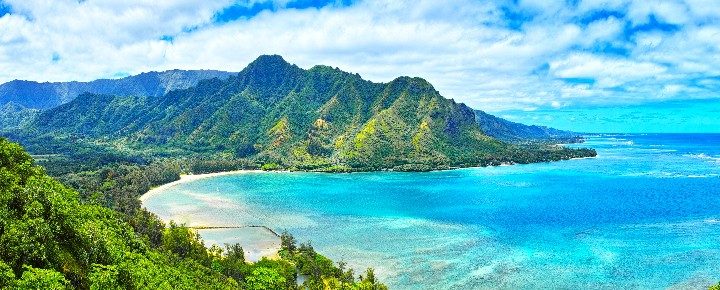
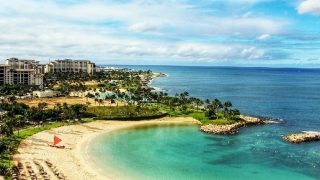
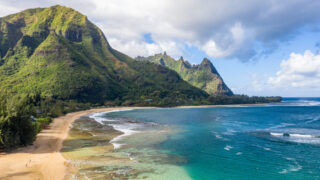
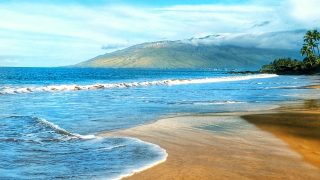

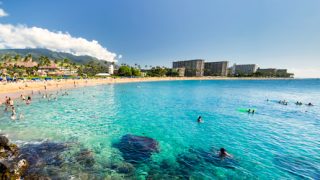
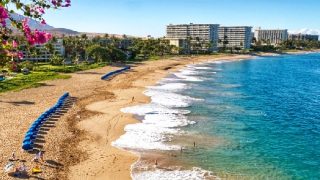
We had planned a trip to the islands next year for a month, but after watching the documentary “Maui rising” And other information on the Internet, we feel that we as tourists are not welcome on the islands anymore. We have read a lot of information about the problems native Hawaiians are experiencing due to displacement caused by short term rentals. We understand other issues concerning natives, such as disparity in water allocation disparity in housing, the entitled attitude by some tourists. It truly breaks our heart that we have now decided not to visit the Hawaiian islands, we do not think it’s prudent to go someplace where we are not welcomed
Respectfully, I’d really like to know what the “ideal” Hawaii looks like to those who live there. If you could make Hawaii anything you wanted, what would it be? Tourists don’t vote in your elections. What do you want your elected officials to do? What would you and your community create? Go ahead and imagine, then go make your dream happen. What do you want tourists to know about Hawaiian culture? What thoughts do you want us to consider? Are we tourists even capable of understanding? Sometimes the actions of locals towards me lead me to conclude you don’t think we are. Let us know what it is you really want, because we can’t guess. I love visiting Maui and look forward to more visits. Aloha.
I just read a Census report that indicates Native Hawaiians represent only .2% of the population. Is that .2% entitled to a veto over the majority?
Doubt if that will change much over time.
When someone tells you who they are and what they think, believe them. I can tell that you are riding a line regarding being drawn to the natural beauty of the islands and the horrific treatment tourists receive. Especially white mainlanders. I understand the draw, but, at what point do you start getting the message?
For the most part Hawaiiians stay clear of where the tourists are. I am very sorry for any bad experiences you may have encountered but have never seen this or heard it from the visitors I converse with daily. My work is talking with visitors for the past 30 years. Perhaps in areas that are Kapu or if a visitor has done or said something viewed as disrespectful. Some locals but not the majority are resentful. Some not even Hawaiian. They blame the high costs on tourism. Yet, almost all of us are dependent on tourism in one way or another. We welcome tourists and do our best to assist in them having a memorable time so that they will want to return and tell others to come. I agree the politicians should watch what comes out of their mouths.
Sorry Kim but I have never had an issue until my visit to Maui in Feb 2024 but I had several issues then. If asking where an item is located in a store to an employee could be considered disrespectful then I am sorry. I had three distinct occasions in 2 grocery stores and a clothing store where I asked an employee where I might find something and was either totally ignored or rudely told over there. One simply ignored me so I politely asked again and he turned and looked at me with apparent disgust and then turned away. All three definitely appeared to be Native Hawaiins. I had one other issue with a non employee where a woman refused to allow me or another person to get past her as she was blocking an aisle unnecessarily.
I am so sorry Bill! I wish you would report to the manager/owner anything like this. If I or the people I know saw this we would step in. This is very sad and hurts all of us. There is no excuse.
Just out of curiosity, are you a white person? I have never felt real racism directed at me anywhere but on a visit to Hawaii.
I have sometimes felt the same way. It’s as though Some want us to drop our cash at the airport and catch a return flight home.
There is much criticism of large out-of-state corps building high-rise hotels. Well, assuming elected officials could do something about that – only Hawaii residents voted those losers in.
Marc Benioff just just got exposed over the 360+ acres he owns on Maui. he actually went after the reporter who exposed him… what are his intentions? he was not happy about it. then, like Zuckerberg, he made a $150m donation to local organizations to buy them off. it’s just another indication that the billionaires are working to make Hawaii the play ground of the wealthy and only the wealthy. Us lowly mortals need not visit. And the locals become slaves to the billionaires.
Tourism ownership and regulation should belong to Indigenous Hawaiians; as well as self-governance. A system of payback / Landback of extremely wealthy individuals to indigenous Hawaiians should be instituted. Balance must be restored.
Indigenous Native Americans were enslaved and had their lands taken away as far back as 1636 in N. America. Later on their children were taken and put into “residential schools” to be taught English; thousands died. Hawaiians aren’t the only ones conquered like this. We can’t go back, only forward and try to learn from the mistakes of the past so that the future is better.
I saw some very interesting statistics today published by the US Census Bureau in 2021. Here is an excerpt:
What are the employment statistics in Hawaii?
White-collar workers make up 81.6% of the working population in Hawaii, while blue-collar employees account for 18.4%. There are also 75,693 entrepreneurs in Hawaii (11.13% of the workforce); 406,389 workers employed in private companies (59.74%); and 141,942 people working in governmental institutions (20.86%).
Y-o-Y Change
White Collar 555,144 1.0%
Blue Collar 125,157 0.4%
White Collar 81.6%
So my question is: If most jobs in Hawaii are tourist-related, and tourism is notorious for low-paying jobs, where are all of these white-collar residents working??
Thank you so much for this Pat. We are the ones that have lost our jobs and business or about to lose our businesses because they are dependent on tourism. We are also the ones that could not survive on welfare or unemployment because our mortgages and cost of living exceeds what those institutions paid. We are the ones that may be forced to sell our homes and leave the island. We are the ones that understand the necessity of tourism and that we must now stand up for Our rights. We are or have exhausted our assets hoping this will get straightened out so that we can rebuild and survive. Our tax money,, job opportunities brought to the island have basically contributed to the economy much more than the Hawaiian Nation realizes.
The Great Mahele 1848 of Kamehameha III. For every buyer there is a seller, and for every seller, a buyer. What’s done is done.
A guide to the future is to look at how people behaved in the past.
Solution? Study the Russian Revolution. Vested interests never willingly give up their power and control.
Honolulu is the seat of government. Most of these jobs are government, state and local, law firms, insurance, banks, etc. The day to day jobs a million residents need to survive. That also skews the numbers for the neighbor islands where there aren’t nearly as many white collar jobs.
These are issues that should be addressed by a representative government. These are the sort of things issues for which governments were formed. The State has collected millions on taxes, heavily dominated by contributions from tourism. These should be spent on addressing these issues
It’s debatable whether inequality (I take it you mean income inequality) has increased since the early 1900s. Income inequality is a feature, not a bug, of a free market society. A laborer in 1910 plantation work made $15, plus housing, water, firewood, and basic medical care. Today that would amount to $450 cash ($X30, inflation!), $1800 rent, $20 water, $180 electricity (cooking, lights), $550 medical insurance, or $3000 per month. Minimum wage is now $15/hr X 172 hours = $2580 + $550 medical insurance = $3130/mo., and still have to buy water and electric. So the bottom end was similar. If there are more rich people, or richer ones, proportionately, is inequality worse?
An element of envy lies behind the ‘inequality bad’ meme.
I love this article. Very well written. I am no longer a local, but I have no issue with the extreme wealthy living anywhere. They are not obligated to do anything, but live there. Before moving to Maui in 71. I self-studied throughly the histories mentioned above, and also did a college course. Apparently, there will always be social inequality about the erosion of local culture, land, etc. As long as you put 2 people in one small space for length of period anywhere in the world., there will eventually be conflict. It does become exhausting hearing people make uninformed comments about their own territory.
This is a great introduction to the tension we face with Hawaii tourism. Other historical contributions to the tension include our overthrow of the Kingdom of Hawaii and our repression of Hawaiian culture, including the language, in the years prior to the growth of tourism. I’ve found that a bit cultural sensitivity and attempts to understand some of the resentment Hawaiians feel go a long way toward easing the tension. I sincerely hope that the challenge of affordable housing can be addressed in a way that allows for responsible tourism.
Unfortunately respect goes both ways. My wife and I shop almost totally at small local stores and restaurants and buy from road stands when in any country and we spend a fair time in Hawaii and mostly Maui. We just returned from Maui and I have never felt so unwelcome. The local Native hawaiians were extremely rude and in many cases just refused to see you or deal with you. This happened in many stores that we have dealt in before with no problem. This does not make one feel sorry for or respectful to them.
I feel the same way. Disrespected by Hawaiian locals as a Canadian tourist spending my 65 cent dollars. They pay Kamaaina rates on most purchases while I pay full pop. We will not be back!
Hi guys. “The disparity between the have and the have nots” allowing the likes of Oprah and Zuckerberg to buy up large parcels of land for their own use. So many housing units could have been built on all those acres that were sold to them. Their “philanthropy” doesn’t begin to add any difference to the ongoing problems that persist over there. Too late now for eminent domain to restructure the land for the use of the local population.
If the local population had wanted those properties they could have purchased them in the decades before Oprah and Zuckerberg ever hear of Hawaii.
Exactly!
Deborah,
As I recall, most if not all of Winfrey’s land on Maui is upslope on Haleakala is not suitable for large scale housing develop. I can state that with certainty about Zuckerberg’s on Kauai. No way the county was going to attempt some sort of “eminent domain” to buy up ag land for dense housing development. In any event, there is no land shortage over here. And I suspect a majority of people do not want any further in growth on Kauai, aka, NIMBY Island. You can hate rich people all you want, but magical thinking does not solve a problem.
I tend to agree and I would go so far as to say that Zuck/others buying up this land helps to preserve Hawaii and prevent overdevelopment.
Nice article. Appreciate the balanced view. Wish the fix for these issues was simple.
It is a topic neither simple, universally clear, nor soundbite friendly. Which means in the generation of 200 something character twitter posts, Instagram pictures, and tiktok political statements, it’s easier to inflame your base to act than it is to do the hard work of solving problems and seeking unity.
Thank you for that well nuanced look at Hawaii tourism.
One could possibly extend the problematic growth to the Internet and the explosive proliferation of vacation rentals.
Tourism which had previously been limited by traditional hotel capacity was suddenly rising at an exponential rate with the advent of Internet driven companies like Airbnb and VBRO.
A growing sense of entitlement as evidenced by so many bitter comments demonstrate that those that want to visit will not be easily deterred by anything other than price, which is what we’re now seeing.
The huge hotels and resorts built over the past 20+ years far surpass the VRBOs, etc. The government encouraged the building of those giant, off island, corporate owned properties and promoted tourism. And now the people owning a vacation rental home are being villainized. And, no, I do not own one or know anyone who does.
“corporate owned properties”
Those corporations are owned by stockholders. My guess is some of those stockholders are Hawaiian. Also, some of the retirees from those corporations are probably spending their retirement income in Hawaii.
It’s a very integrated country, especially financially.
Agree! The people who should have been looking out for the people of Maui sold their souls to the developers & the hotel industry. So many mega hotels & vacation condo complexes overfilled the island and a added huge number of vehicles on the road. We were in Maui last month and were thanked multiple times for coming. We brought our checkbooks and made many contributions. We’ve been yearly visitors for 39 yrs. Maui no ka oi!!!
Nobody is forbiding Hawaii to be Silicon Valley or Wall Street. If there are not better paying jobs it might be because there is not a lot of qualified employees. Do not blame it on tourists.
The same problems are happening in the popular ski destination
resort areas like Park City UT, Sun Valley, Vail, Steamboat Springs
and etc. Even in coastal Oregon, it’s hard for tourist related employees
to find a place to live that they can afford.
People love Hawaii and Hawaiins. People also love Niagara Falls and Empire State bldg and also love natives in Arizona and Colorado river.
That is America and Americans.
Love is our culture.
My wife and I were planning our 50th anniversary vacation to Hawaii. We had 3 trips in the past that were good to great. However, we are looking at alternatives since we contacted the Hawaii Governor’s office about his comments that visitors were not really welcomed. I wish him and the great people of Hawaii the best, but we have found another venue for our 50th anniversary.
The bottom line: Hawaii is a fabulous place to visit. For many Americans it is safer and easier to navigate. You get a foreign experience without hassles of a passport, language, exchanging currency or worrying about tropical disease. “Most” visitors are “mindful” (idiot HTA phrase) and show desire to nurture culture. And name a tourist infrastructure that isn’t overloaded these days. Keep that in mind and your trip will be enjoyable. For us, personally, the aftermath of the fires was a lot to deal with last trip. Volunteering was the best thing we did all year. But what we saw and heard told us it’s time to take a short break from it all.
In 1999, we were gifted cash by father-in-law, who urged us to “have fun”. For the first time ever, we used a AAA travel agent, who planned a trip for me,spouse, and my 2 children. It was to Kauai, a place we had never ever previously heard of.
Since then, we went back when we could afford it. Increasingly, though we tried to spread aloha, never crossed a kapu, etc. we were treated derisively. Our last trip, in Honolulu, I was approached by a person who aggressively asked me why I wore alohawear, since no one else does.
To me, the issue is expectation. Hawaii is a state. I expect it to be relatable as part of my country. When Hawaiians come to my state (Missouri), I hope they are treated with kindness.
Mahalo for this beautifully written article that offered truth while doing its best not to step on toes. Even this pro tourism that fights for awareness and need for jobs to sustain Maui agrees with how you explained this. I never looked at luaus, Auntie’s stores and stands, lei greetings or aloha spirit as exploitation. I truly thought it was sharing of the Hawaiian culture and true Aloha Spirit. I always saw the stores that sold items from Cuba and other countries that passed for tropical souvenirs exploitation. No regulations there… And whose idea was it to get rid of our sugar and pineapple farms? The government allows the commodities we did have to be stripped and then blames tourism? How about some regulations on minimum wages?
Sorry it should have said China not Cuba! I was typing so fast while emotional. Please note that there still is Aloha Spirit here and many of us welcome tourism knowing that it provides so many jobs. Create other alternatives before proposing anything drastic and without insulting or hurting those that have loyally brought money to our state. Visitors coming to Hawaii do not expect to it to be like a Las Vegas trip. They come for the natural beauty and culture. Shame on those that are forgetting this and pointing fingers in the wrong direction. Aloha Spirit goes both ways. We can appreciate the visitors who have enabled us to eat and pay our bills! We have always had choices; education, careers and opportunities. Work for a future.
Pineapple and sugar plantations did not really create high-paying jobs in Hawaii either. There was also talk about diversion of water for Plantation use and the fact that a few families owned much of the land and collected all the profits.
If Hawaiians want to reduce tourism, then their fellow Americans should be given preference.
I think you just touched on part of the issue. My experience was one of racial overtones. When you’re mocked and derided as a tourist, while in a tourist destination, doing tourist things and spending tourist money, it’s hard to justify spending your tourist time and dollars there. I really don’t think they consider themselves “Americans”. I really think they would like to simply be their own country again yet continue to have all the haoles fly in and drop their cash. Feed ’em a little poke, do a hula for them, then get them back on the plane to the mainland. Not welcoming or inviting in the least.
I love Hawai’i. We’ve only visited 3 islands, primarily Maui, Oahu(3), and the Big Islans. Our first visit to Maui, in 2004 was brief, but in 2006 we drove the “Road to Hana”, visiting Black Sand Beach where there were no others around. Our drive was as “peaceful” as it could be, but we’re glad we did it then because traffic has doubled over the 20 years. Even driving to Lahaina we didn’t start having backed up traffic until about 2015. It’s sad that there are people who do not respect the islands. We want to continue visiting but it’s apparent that HTA only wants a certain “class” to visit, and although we’ve been visiting for 20 years we are not the “class” the HTA wants. Aloha.
Being married to a Native Hawaiian gives me a different perspective from some when we travel to Hawaii. We appreciate the wonderful Aloha on the Islands. Tourists need to be mindful of protecting the beauty ecology so it will be there for many generations. Can’t wait for our next trip. Many Ohana to visit & much to enjoy!!
With your different perspective, and being married to a native Hawaiian, how do you both feel about the residents also “needing to be mindful of protecting the beauty and ecology so that it will be there for many generations”? Rusted out cars, deteriorated couches and washing machines at the side of the road do not contribute to this goal, and yet the only people I ever see lectured and admonished are the visitors.
I totally agree with being mindful and respectful of the aina. However, just as tourist misbehavior is called out, rampant disregard and disrespect by residents should be publicly admonished as well.
Ever driven through an indian reservation here in the states? Same. Thing.
I have been coming to the Hawaiian Islands for over 50 years. Visitors were always welcome until Covid hit. Everything went belly up. The locals reclaimed their beaches and many were content with unemployment while others needed the tourist dollars. Things are expensive on the mainland too. I have a timeshare so I will continue to come as long as I can afford it. So sad.
Redhydrogen is the solution to the dependence on tourism. Drive a hole to where its 200c the water spits off in h an o2 ao its costs only $1 / kilo yld a $15 fill up in four minutes.
I get irked when subjects of over tourism, poor infrastructure, housing costs, cultural concerns and pay not keeping up with inflation like they’re exclusive Hawaiian issues.
I live in California where the same can be said about any of our popular tourist locations.
What they all have in common is poor leadership, lack of good planning and waste of tax dollars that do nothing to address actual problems.
Exactly! Has anyone noticed the cost of housing, food, etc. In Los Angeles?? I was born in L.A. and in the actual city, it is trashed. Homeless, drugs, shootings, smash and grab, burglaries, you name it. Wages that don’t cover the cost of living. And who in Hawaii is selling their properties? They don’t have to sell! And who is allowing more hotels and resorts? Tourists are an easy target. You need to look at your own behavior before you dump on others.
Yes, it always seems easier to name others for our own shortcomings, rather than ourselves.
Thank you Richard!!! I’ve been a Maui resident for 30 years but am well traveled. You are absolutely correct. Unfortunately, I see too many locals content to live on welfare and unemployment and it helps them save face to blame it on tourism and those fortunate enough to be educated, have careers and buy property. We are all so blessed to live here. If they wanted to work they would understand the need for tourism which is our main source of income. If too expensive to live, move somewhere else. Why make it worse for everyone else; those that live here and visitors.
Many ‘missteps’ have been taken by HI government over the decades. Tourism was ‘limited’ for a long time due to cost. In the 60s to 80s when so many hotels, etc., were built and air transportation became more affordable, tourism started getting out of hand. Government in HI made no attempt to control this ‘growth’, as it brought much desired tourist dollars and ‘jobs’ (mostly low-paying). In the mean time, Hawaii’s population continued to grow, both native Hawaiian and mainlanders. Limited housing availability compounded by high desirability causing lack of affordability. What was once a beautiful paradise is now a ‘resort’, in the worst meaning of the word. You can’t turn back the clock, folks.
As long as Hawai’i has no viable income production that does not have anything to do with tourism they are stuck. Any agriculture that was decent was shut down in a large part because of land was more valuable for housing (caused in part due to tourism and people staying). Hawai’i is trying to reduce the military presence which in turn reduces the jobs created related to that. Unless they can jump on the IT wagon there aren’t industries to replace tourism. Everything in Hawai’i is dependent on tourism…housing, restaurants, daily Gov’t. jobs, transportation and so forth.
It wasn’t long ago that the Hawaii tourism board ran ads on TV and in print, sponsored PGA golf tournament broadcasts, and conducted other promotions to increase tourism to the islands. This outreach was obviously very effective. Maybe they should now run ads asking people to stay home?
Western Canadian TV stations (Global), plus HGTV Canada are currently running “Visit Maui” commercial spots. Mixed messaging.
Both literally and in effect, telling selected groups of people (mostly the rest of the USA) to stay home is what the HTA and the governments of Hawaii have done and continue to do.
Remember, the HTA is not run by the same organization anymore. The HTA is now being run by the Council for Native Hawaiian Advancement.
If posts on BOH is any indication, it looks like their campaign is working.
It now seems to be an accepted fact that there is too much tourism in Hawaii. We love going there, and will likely continue. I would recommend that the state abandon all marketing initiatives to draw tourists, which should result in a slow reduction of visitors. Those marketing dollars can then be redirected to all the environmental efforts for which the state is proposing to over-tax everyone.
It may just be my perception but there seems to be a bit of a blurred line in articles I have read. (Not BOH). It seems that there isn’t a clear or consistent definition of native Hawaiians, vs locals vs residents and it seems their ideologies for the future look of Hawaii are different. Anyway, I am not sure if anyone will be able to “turn back the clock” that some desire. Some of the same issues are being faced all over the world, not just in Hawaii.
Most readers will probably concur that wages in Hawaii are not high enough. Residents that serve the tourism industry don’t earn enough to cover the high cost of living in in Hawaii, in particular housing. Since tourists tend to be budget conscious, we look closely at the cost of services, and given similar experiences, generally choose the lowest cost provider. This makes it difficult for a provider to attempt to break this cycle. If they raise their staff’s wages, their costs go up and their competition acquires their former customers.
Why doesn’t Governor Green propose a state wide minimum wage this levels playing field for all businesses in Hawaii. Trickle down clearly hasn’t worked, and this is easier to stomach than fees.
Hawaii raised the minimum wage from $12/hr to $14/hr as of 01/01/2024.
Many tip based employees make a good income. However I’ve seen many waste a lot of money on the latest iPhone, Apple Watch, kayaks, surf boards, Toyota tacoma with expensive lift kits, tires and wheels and racks. Then I see the couples owning these items where both are working service tip based jobs. Rather than save, short sighted purchases seem the rule. The Lahaina burn area consisted of the greatest concentration of multiple family housing (rentals) in the entire state.
$14 an hour is not enough here. But I still see job postings for less. I am always amazed when I see these young people driving $50k plus vehicles around town. They obviously still live with their parents. Priorities are different here. This may just be a great wake up call for many. We rearranged our values with Covid. Families became closer and we learned what we could do without. There must be another lesson here. I hope it is learned before they totally destroy Maui’s commerce and future.
I love visiting Hawaii, it is a beautiful paradise. I dont think they shld be selling land to the Rich and famous. You see what they did to California, it’s a junk yard, and homeless people are everywhere. Keep your land fir the locals, let them buy it and keep Hawaii beautiful.
We all have the right to buy property, even the rich and famous. The largest public land owners are the State of Hawaii, the US Federal government, Hawaiian Home Lands (held in trust by the state for native Hawaiians), and the County of Maui. Some of that land should be given for affordable housing.
Remember Oprah agreed to keep 100s of acres as a conservation project. A lot of the land is not buildable for home developments and should always be protected.
No one has answered my question, which is why do residents of Hawaii sell their homes and/or land to anyone other than another resident of Hawaii?? If you offer to sell property for a certain price and someone pays that price, why then are so many residents complaining about off-islanders buying property? They can’t buy if no one sells! Why are property owners not selling to local families/friends? And then if the buyer isn’t a resident of Hawaii, the buyer is considered the “bad” person, rather than the person who sold it!!
A seller will sell to whoever can pay the asking price, period. I have been a home owner here for 30 years. I do not want to be forced to only sell to a resident/local. They have the same opportunities to purchase as does a seller from the mainland. I would be happy to sell to a resident. I just don’t agree with taking away our rights to sell or purchase. I moved here from the mainland and had the opportunity as have many other homeowners. We are not preventing anyone who qualifies to purchase property. You work hard and save money just like any other place. Please know that not all of us consider non residents “bad” or the enemy. It’s that many of us are more reserved and in disbelief that this is happening or allowed to happen.
Richele,
I’m sure you know the answer. It applies to every property sale in the country. If you get an offer that is what you asked for, you must sell. It seems potential local buyers are not buying, for whatever reason. If there are multiple offers, I think you have the makings of an auction, and the sky is the limit.
It’s not the buyer’s fault that others can’t or won’t buy the property at the asking price.
I think it’s crazy that Some locals are somehow offended that their fellow Americans are buying property in Hawaii. High prices may help future sellers if the bottom holds.